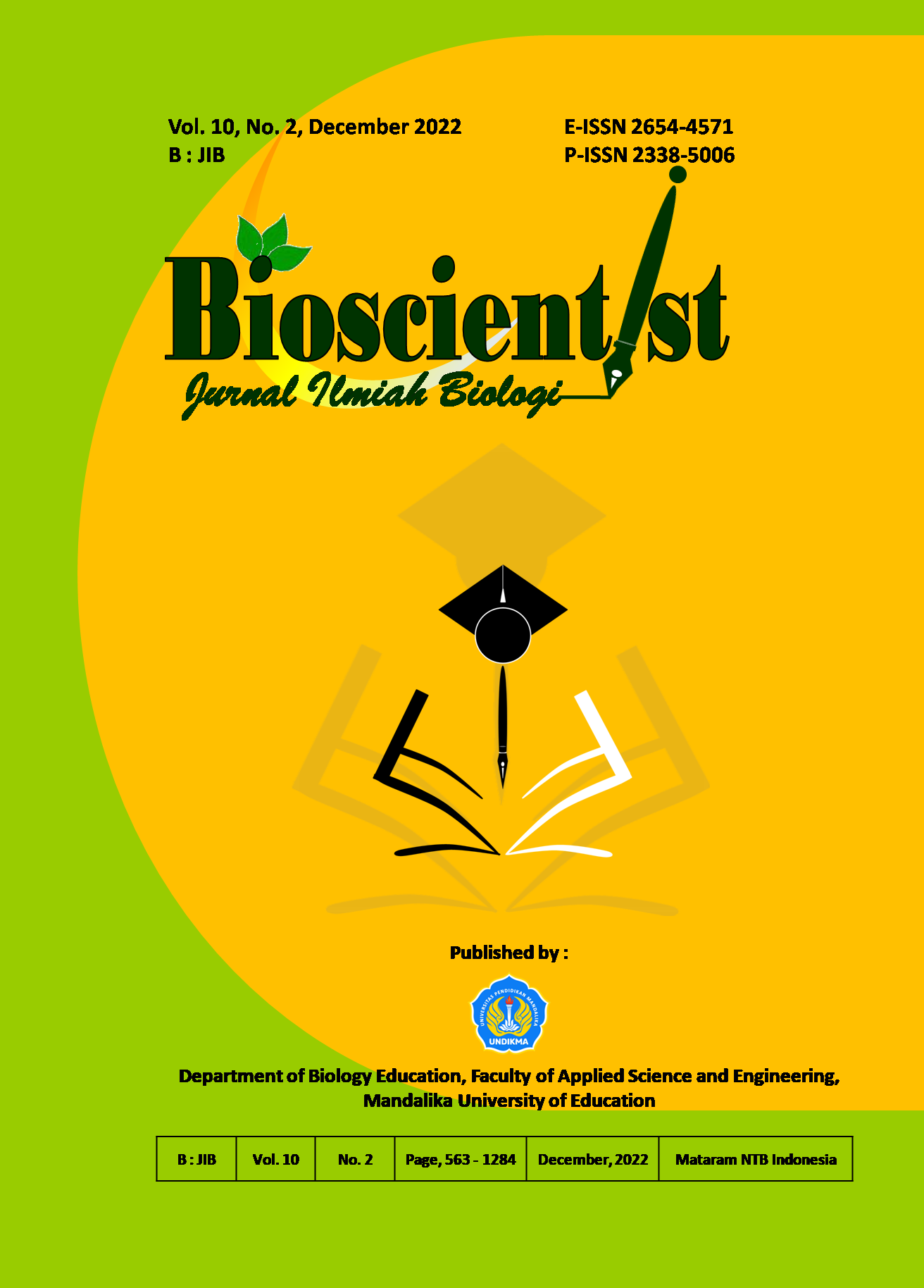Perbedaan Individu dalam Proses Pembelajaran dan Faktor-faktor yang Mempengaruhinya
DOI:
https://doi.org/10.33394/bioscientist.v10i2.6333Keywords:
Individual Differences, Learning, Factors.Abstract
Curriculum development aims to advance education, curriculum development also considers the characteristics of students, because each individual has various differences. Individual differences that need to be considered in the learning process are the basic skills, talents, interests, speed, and learning styles of children. Each individual has a learning style that can be influenced by several factors. Students at PGRI University in West Sumatra have different characteristics, one of which is learning style. This study aims to determine individual differences in the learning process and the factors that influence it. This research was conducted using descriptive analysis with qualitative methods, meaning that the results of data collection for individual differences by distributing questionnaires, and for the factors that influence them are supported by a literature review. The results obtained are the percentage of students' visual learning styles 84.85% good criteria, audio learning styles 78.79% good criteria, and kinesthetic learning 74.49% good enough criteria. Individual differences are influenced by genetic and environmental factors, environmental factors consist of school, family and community. It can be concluded that there are differences for each individual in the learning process. There are 3 types of individual learning that can have implications for learning, namely: auditory, visual, and kinesthetic types. The factors that influence individual differences are genetics and environment. The environment consists of schools, families, and communities. Individual variations have an impact on learning implications for the way teachers plan and implement the learning process.
References
Arylien, L.M., Bire, Uda, G., dan Josua, B. (2014). Pengaruh Gaya Belajar Visual, Auditorial, dan Kinestetik terhadap Prestasi Belajar Siswa. Jurnal Kependidikan, 44(2), 168-174.
Dalila, T., dan Saomi, S. (2020). Perbedaan Individu dalam Proses Pembelajaran. AS-ASBIQUN: Jurnal Pendidikan Islam Anak Usia Dini, 5(1), 29-42.
Hadi, I.A. (2017). Pentingnya Pengenalan tentang Perbedaan Individu Anak dalam Efektivitas Pendidikan. Jurnal Inspirasi, 1(1), 71-92.
Hasanah, I., Sri, K., dan Sutrisno, D. (2018). Pengaruh Gaya Belajar terhadap Hasil Belajar Siswa Kelas XI Jurusan Akuntasi pada Kompetensi Dasar. Jurnal Pendidikan Ekonomi, 12(2), 277-282.
Kemendikbudristek. (2020). Keputusan Menteri Pendidikan, Kebudayaan, Riset, dan Tekonologi Nomor 56 Tahun 2020 tentang Pedoman Penerapan Kurikulum dalam Rangka Pemulihan Pembelajaran. Jakarta: Kementerian Pendidikan dan Kebudayaan, Riset dan Teknologi.
Mahanal, S., dan Zubaidah, S. (2017). Model Pembelajaran RICOSRE yang Berpotensi Memberdayakan Keterampilan Berpikir Kreatif. Jurnal Pendidikan: Teori, Penelitian dan Pengembangan, 2(5), 676-685.
Maheni, N.P.K. (2019). Pengaruh Gaya Belajar dan Lingkungan Teman Sebaya terhadap Hasil Belajar Mahasiswa di Jurusan Pendidikan Ekonomi Universitas Pendidikan Ganesha. Jurnal Pendidikan Ekonomi UNDIKSHA, 11(1), 85-95.
Mudjiran. (2021). Psikologi Pendidikan: Penerapan Prinsip-prinsip Psikologi dalam Pembelajaran. Jakarta: Kencana.
Nurlia, Y.H., Rachmawaty, M., Oslan, J., dan Mushawwir, T. (2017). Hubungan Antara Gaya Belajar, Kemandirian Belajar, dan Minat Belajar dengan Hasil Belajar Biologi Siswa. Jurnal Pendidikan Biologi, 6(2), 321-328.
Purwanto. (2009). Evaluasi Hasil Belajar. Surakarta: Pustaka Belajar.
Putri dan Ferazona, S. (2019). Penilaian Dimensi Productive Pedagogies Mahasiswa Pendidikan Biologi pada Perkuliahan Microteaching. Jurnal Bioconcetta, 5(1), 1-10.
Subini, N. (2012). Psikologi Pembelajaran. Yogyakarta: Mentari Pustaka.
Ula, S.S. (2013). Revolusi Belajar: Optimalisasi Kecerdasan melalui Pembelajaran Berbasis Kecerdasan Majemuk. Yogyakarta: Ar Ruzz Media.
Wulandari, F., Mawardi, A., dan Waranis, K.W. (2019). Peningkatan Keterampilan Berfikir Kreatif Siswa Kelas 5 Menggunakan Model Mind Mapping. Jurnal Ilmiah Sekolah Dasar, 3(1), 10-16.













